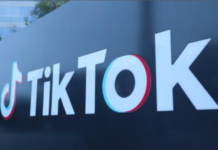By Shannon Boyle
BBB Serving Eastern MA, ME, RI & VT
Fake coupons on social media are one of the more common online scams. People fall for these scams daily – don’t! – as these scams can cause some serious trouble.
The Center for Internet Security said in an article about staying secure on social media, “Social media scams are easy to create and can target thousands of people at once due to how users interact with pages, post, and contacts. Once your account is compromised, malicious actors can leverage it as a conduit to spread scams and malware to your network of friends or contacts.”
Yearly, billions of fake coupons are posted by online criminals trying to trick you. It works because the coupons look real and they offer great deals. By using brands’ official logos, it’s nearly impossible to tell if it’s fake or not. Remember, if it seems too good to be true, it probably is. The Coupon Information Center, an industry group that fights coupon fraud, cautions consumers not to download Internet coupons from unknown sources, or sources you can’t confirm.
Online coupon scams are usually set up like this:
- Share the deal with all your friends.
- “Like” the page associated with the fake deal.
- Fill out a survey with various questions and then enter your email so they can “send you your coupon.”
When you click on the link to get the deal or discount, there’s a chance you could be exposing yourself to identity theft or malware on your computer. When you shared that link, you exposed your friends and family too.
How can you avoid falling for online coupon scams?
- Follow these tips before clicking on any offer:
- Check the business’s official Facebook page and see if the same coupon appears
- Check the business’s website to see if they are offering the same deal
- Never pay money for a coupon
- Check for spelling errors
- Beware of sales on hot items with an expiration date. Scammers capitalize on that sense of urgency, trying to rush people so they don’t think about whether it’s a legitimate deal.
Red flags for coupon scams:
- It went to your junk folder
- The sender’s email address isn’t associated with the business
- When you hover over the coupon link, it doesn’t show the website for the business
- Ask yourself if you signed up to get email discounts from this business? It not, it’s unlikely they’d send you a real discount out of the blue.
Read the Federal Trade Commission’s article about phishing to learn more.
Celebrities like Patrick Dempsey are telling fans to beware of scammers trying to impersonate them to get money. Dempsey Tweeted, “Please do not ever talk to, or give money to anyone saying it is me. My official profile has a blue circle with a check mark. Please report any fake pages.”
Many celebrities have reported similar issues. It’s important that people check that a profile page is verified before giving out any personal information.
If you encounter a social media coupon scam, report it to BBB Scam Tracker at bbb.org/scamtracker.
(This article was written by Shannon Boyle, Content Marketing Specialist for BBB Serving Eastern MA, ME, RI & VT.)














